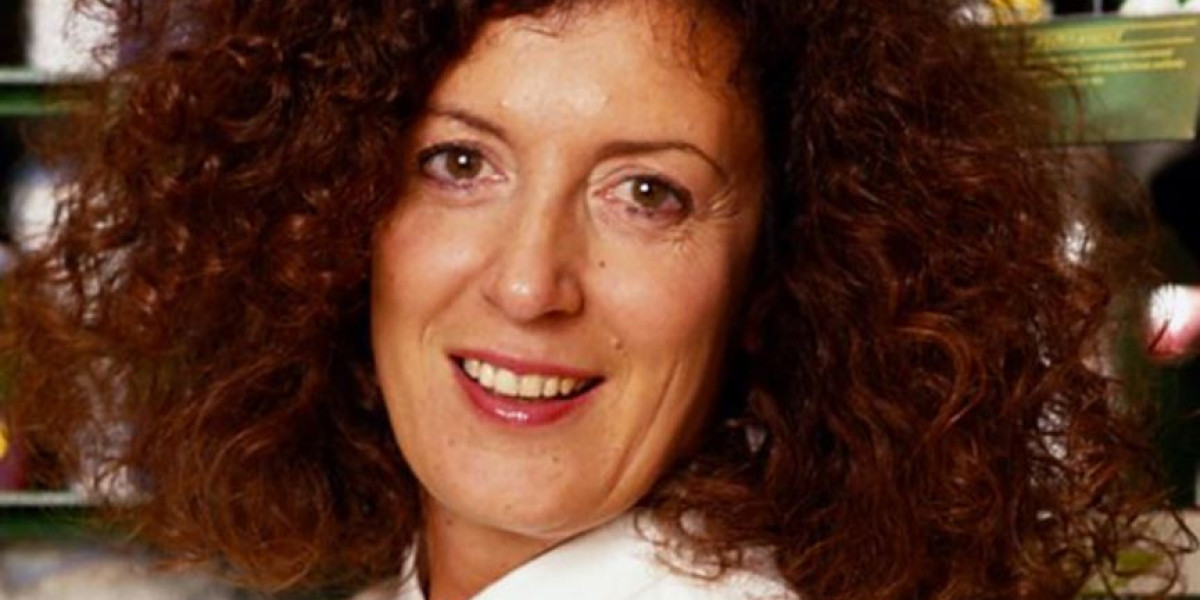Anita Roddick was a British businesswoman, human rights activist and environmental campaigner, best known as the founder of The Body Shop, a cosmetics company that revolutionized the concept of ethical consumerism. She was born in 1942 in Littlehampton, Sussex, to Italian immigrants who ran a cafe. She had a passion for travel and education, and worked as a teacher and for the United Nations before starting her own business.
The Body Shop: A Brilliant Accident
In 1976, Roddick opened her first shop in Brighton, called The Body Shop, with the goal of earning an income for herself and her two daughters while her husband was away in South America. She wanted to provide quality skincare products in refillable containers and sample sizes, all marketed with truth rather than hype. She was inspired by the natural and traditional remedies she had encountered in her travels, and by the original Body Shop in Berkeley, California, from which she borrowed the name and some of the concepts
She opened her second shop six months later, and soon her husband joined the business. The Body Shop grew rapidly, expanding to more than 700 branches worldwide by 1991 The company was one of the first to prohibit the use of ingredients tested on animals and one of the first to promote fair trade with developing countries. Roddick also used the shops as platforms for social and environmental campaigns, such as saving the rainforest, supporting indigenous communities, and opposing human rights abuses
Roddick once said: “The original Body Shop was a series of brilliant accidents. It had a great smell, it had a funky name. It was positioned between two funeral parlors - that always caused controversy. It was incredibly sensuous. It was 1976, the year of the heat wave, so there was a lot of flesh around. We knew about storytelling then, so all the products had stories.
We recycled everything, not because we were environmentally friendly, but because we didn’t have enough bottles. It was a good idea. What was unique about it, with no intent at all, no marketing nous, was that it translated across cultures, across geographical barriers and social structures. It wasn’t a sophisticated plan, it just happened like that.”
A Force for Good
Roddick was not only a successful entrepreneur, but also a visionary leader who believed that business should offer a form of moral leadership, being a more powerful force in society than religion or government. She was involved in activism and campaigning for various causes, such as Greenpeace, The Big Issue, Amnesty International, and Children on the Edge, a charity she founded in 1990 to help disadvantaged children in Eastern Europe, Africa and Asia.
She also advocated for the Angola Three, three African-American prisoners who had been held in solitary confinement for decades in Louisiana. She helped raise international awareness and funds to aid in their appeals of flawed trials. She received many awards and honors for her work, such as the World Vision Award for Development Initiative, the United Nations Environment Programme’s Global 500 Roll of Honour, and the Dame Commander of the Order of the British Empire.
She once said: “All through history, there have always been movements where business was not just about the accumulation of proceeds but also for the public good. I am still looking for the modern equivalent of those Quakers who ran successful businesses, made money because they offered honest products and treated their people decently. This business creed, sadly, seems long forgotten.”
A Legacy of Inspiration
Roddick died in 2007 at the age of 64, after suffering a brain hemorrhage. She had been diagnosed with hepatitis C a few months earlier, which she contracted from a blood transfusion during childbirth. She left her estate to charities, saying: “I don’t want to die rich. I have been fortunate to earn money and I see it as a responsibility to give it away in a proactive, strategic way.”
She sold The Body Shop to L’Oreal in 2006 for £652 million, but remained a consultant and a shareholder until her death. She hoped that the deal would help spread the ethical values of The Body Shop to a wider audience.
Roddick was a remarkable woman who changed the face of business and inspired millions of people with her vision, courage and compassion. She showed that it is possible to combine profit with purpose, and to use business as a force for good in the world. She was a true ethical entrepreneur, and her legacy lives on in The Body Shop and in the many causes she supported.
Did Anita Roddick Write Any Books?
Yes, she wrote several books on her business and social experiences, such as:
Business as Unusual: The Triumph of Anita Roddick
Body and Soul: Profits with Principles–The Amazing Success Story of Anita Roddick & The Body Shop
Take It Personally: How to Make Conscious Choices to Change the World
A Revolution in Kindness
You can find more books by Anita Roddick on Goodreads or Amazon.
Did Anita Roddick Win Any Awards?
Yes, Anita Roddick won many awards for her business and social achievements. Some of these include:
Veuve Clicquot Businesswoman of the Year (1984)
Mexican Environmental Achiever Award (1993)
National Audubon Society Medal (1998)
Botwinick Prize in Business Ethics (2001)
Dame Commander of the Order of the British Empire (2003)
She also received honorary doctorates from several universities and was inducted into the International Green Industry Hall of Fame in 2013. She was a remarkable woman who inspired many people with her vision and values.
Anita Roddick Net Worth
Anita Roddick, a renowned entrepreneur in England, was estimated to have a net worth of $30 million in 2024. She gained recognition for her founding of The Body Shop, a global cosmetics and skincare company known for its ethical principles and commitment to social activism.
However, other sources give different estimates of her net worth, ranging from $5 million to $51 million. It is important to note that Roddick donated her entire fortune to various charities before her death in 2007, saying: “I don’t want to die rich. I have been fortunate to earn money and I see it as a responsibility to give it away in a proactive, strategic way.”
Controversy And Activism Of Anita Roddick
Anita Roddick was a British businesswoman and activist who founded The Body Shop, a cosmetics company that promoted ethical consumerism and social causes. She was involved in various campaigns and movements, such as:
Saving the rainforest and supporting indigenous communities. She launched a product line called “Trade Not Aid” that sourced ingredients from marginalized groups and helped them preserve their culture and environment
Opposing animal testing and promoting cruelty-free products. She was one of the first to ban the use of ingredients tested on animals in her products and to support alternative methods of testing. She also joined forces with animal rights groups such as PETA and Cruelty Free International
Fighting for human rights and justice. She advocated for the Angola Three, three African-American prisoners who had been held in solitary confinement for decades in Louisiana. She helped raise international awareness and funds to aid in their appeals of flawed trials. She also supported causes such as Greenpeace, The Big Issue, Amnesty International, and Children on the Edge, a charity she founded to help disadvantaged children
However, Roddick also faced some controversies and criticisms, such as:
Copying the concept and name of The Body Shop from the original store in Berkeley, California, which she later acquired the rights to. Some critics accused her of plagiarism and dishonesty, while others defended her as an innovator and a pioneer
Selling The Body Shop to L’Oreal, a company that was known for using animal testing and synthetic ingredients. Some customers and activists felt betrayed and disillusioned by the deal, while Roddick argued that it was a strategic move to influence L’Oreal and reach a wider audience
Being hypocritical and inconsistent in her ethical claims and practices. Some critics pointed out the contradictions and gaps between her ideals and realities, such as using non-recyclable packaging, exploiting workers in developing countries, and exaggerating the benefits of natural products.
Conclusion
Anita Roddick was a remarkable woman who changed the face of business and inspired millions of people with her vision, courage and compassion. She showed that it is possible to combine profit with purpose, and to use business as a force for good in the world. She was a true ethical entrepreneur, and her legacy lives on in The Body Shop and in the many causes she supported. She died in 2007, but her spirit and values remain relevant and influential today.










